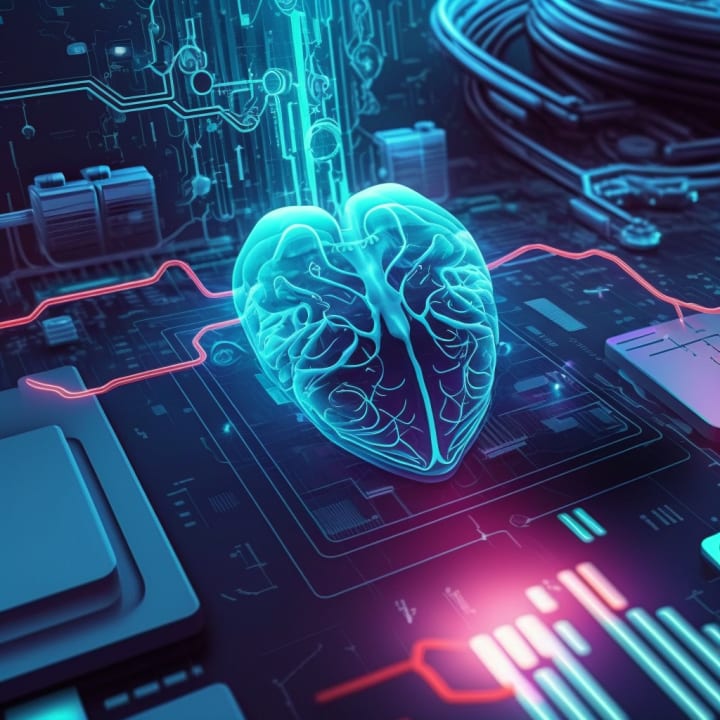The Role of AI in Healthcare
Opportunities and Limitations

Artificial intelligence (AI) is making significant inroads in many fields like Mobile Technology, Space Technology, Social Media, and healthcare is no exception. With the rise of big data, machine learning, and other technological advancements, AI is transforming the way healthcare is delivered, making it more efficient, accurate, and personalized. We will explore the opportunities and limitations of AI in healthcare and how it can impact patient care.
The healthcare industry generates massive amounts of data, from patient records to medical imaging to clinical trials. However, most of this data is unstructured, making it difficult for healthcare professionals to manage and analyze. AI technologies can help healthcare professionals process this data and turn it into actionable insights. AI can also help healthcare professionals make more informed decisions, leading to improved patient outcomes.
Opportunities of AI in Healthcare
Improved Diagnosis

AI algorithms can analyze vast amounts of medical data, including medical imaging and patient records, to identify patterns and anomalies that may be difficult for humans to detect. This can help healthcare professionals diagnose diseases at an earlier stage, leading to more effective treatments and better outcomes for patients.
Personalized Medicine
AI can help healthcare professionals create personalized treatment plans for patients based on their unique medical history, genetics, and other factors. By analyzing patient data, AI can identify the most effective treatments and medications for individual patients, leading to better outcomes and fewer side effects.
Improved Patient Experience
AI can help healthcare organizations improve the patient experience by automating routine tasks and streamlining administrative processes. This can free up healthcare professionals to spend more time with patients and provide more personalized care.
Drug Discovery
AI can help pharmaceutical companies accelerate the drug discovery process by analyzing vast amounts of data to identify potential drug candidates. This can help pharmaceutical companies develop new drugs faster and more efficiently, potentially leading to new treatments for diseases.
Telemedicine
AI can also facilitate telemedicine by providing virtual consultations and monitoring patients remotely. This can improve access to healthcare for people in rural or remote areas, as well as for people who are unable to travel to a healthcare facility.
Limitations of AI in Healthcare
Data Quality
One of the biggest limitations of AI in healthcare is the quality of the data that is used to train AI algorithms. If the data is biased, incomplete, or inaccurate, the AI algorithms may produce flawed results. It is therefore essential to ensure that the data used to train AI algorithms is of high quality and representative of the population it is meant to serve.
Privacy and Security
Another limitation of AI in healthcare is privacy and security concerns. Healthcare data is highly sensitive and must be protected from unauthorized access or disclosure. AI algorithms must be designed to protect patient privacy and comply with regulations such as HIPAA.
Lack of Human Interaction
While AI can automate routine tasks and streamline administrative processes, it cannot replace human interaction in healthcare. Patients still need to interact with healthcare professionals to receive personalized care and emotional support.
Lack of Transparency
AI algorithms can be opaque, making it difficult to understand how they arrive at their conclusions. This can make it challenging to trust AI algorithms and may lead to skepticism among healthcare professionals and patients.
Conclusion
AI has the potential to revolutionize healthcare by improving diagnosis, personalizing medicine, improving the patient experience, accelerating drug discovery, and facilitating telemedicine. However, there are also limitations to the use of AI in healthcare, including data quality, privacy and security concerns, lack of human interaction, and lack of transparency. As healthcare organizations continue to adopt AI technologies, it is important to address these limitations and ensure that AI is used ethically and responsibly to improve patient outcomes.
FAQs
What is AI in healthcare, and how does it work?
AI in healthcare refers to the use of artificial intelligence technologies to improve the efficiency, accuracy, and personalized care in the healthcare industry. AI works by analyzing vast amounts of medical data, including patient records, medical imaging, and clinical trials, to identify patterns and anomalies that may be difficult for humans to detect. This can lead to improved diagnosis, personalized medicine, and faster drug discovery, among other benefits.
What are some of the potential benefits of AI in healthcare?
Some potential benefits of AI in healthcare include improved diagnosis, personalized medicine, improved patient experience, faster drug discovery, and telemedicine.
What are some of the limitations of AI in healthcare?
Some limitations of AI in healthcare include data quality, privacy and security concerns, lack of human interaction, and lack of transparency in AI algorithms.
How can healthcare organizations address the limitations of AI in healthcare?
Healthcare organizations can address the limitations of AI in healthcare by ensuring that the data used to train AI algorithms is of high quality and representative of the population it is meant to serve, by protecting patient privacy and complying with regulations such as HIPAA, by ensuring that AI is used to complement human interaction rather than replace it, and by promoting transparency in AI algorithms.
What is the future of AI in healthcare?
The future of AI in healthcare is promising, with continued advancements in technology and increased adoption by healthcare organizations. AI has the potential to transform healthcare by improving patient outcomes, reducing costs, and improving the overall healthcare experience for patients. However, it is important to address the limitations and ethical considerations of AI in healthcare to ensure that it is used responsibly and ethically.
About the Creator
Zubair Ahmed
I am a software engineer. Seo specialist and a content writer. I am specialist in mobile software also.





Comments
There are no comments for this story
Be the first to respond and start the conversation.